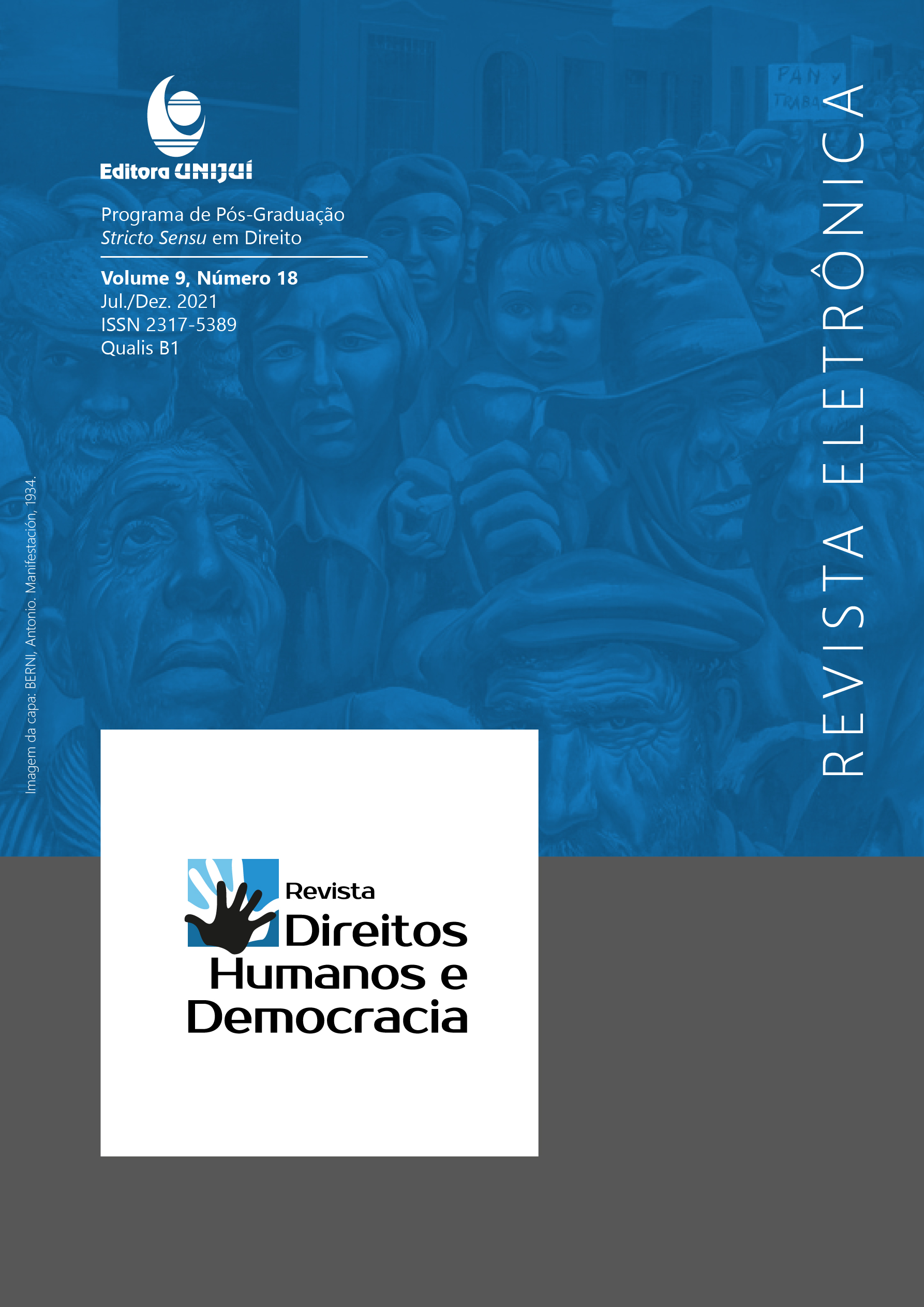PARALELO ENTRE A TEORIA DA JUSTIÇA COMO EQUIDADE DE JOHN RAWLS E A IGUALDADE DE CAPACIDADES DE AMARTYA SEN
PARALLEL BETWEEN JOHN RAWLS’ JUSTICE AS FAIRNESS AND AMARTYA SEN’S CAPACITY EQUALITY
DOI:
https://doi.org/10.21527/2317-5389.2021.18.12202Keywords:
Desenvolvimento humano, Distribuição de justiça, Justiça social, Justiça como equidadeAbstract
John Rawls’ theory of justice as fairness represents a mark in the philosophical and political debate about the distribution of justice. In an approach that connects with the theory of justice as fairness, Amartya Sen argues that individual and collective freedoms must be prioritized over economic development. This research aims to approach the parallel existing between the theory of justice by John Rawls and Amartya Sen, based on the criticisms made by Sen about the theory formulated by Rawls. The problem inherent in this research is thus concentrated in the following terms: what are the similarities and contrasts between John Rawls' theory of justice as fairness and Amartya Sen’s justice focused on achievements? To develop the qualitative research, the deductive method is used, with an analysis of concepts and premises of the scientific literature on researched themes, through theoretical research guided by the reading of books and articles published in scientific journals. The hypothesis associated with the formulated questioning indicates that, for Sen, while a theory of justice with a transcendental approach, such as Rawls', intends to understand what it would be like perfectly just institutions, his comparison approach focused on achievements aims to find answers to the question of how justice can be promoted.
Downloads
Published
How to Cite
Issue
Section
License
By publishing in the Revista Direitos Humanos e Democracia, authors agree to the following terms:
Articles are licensed under the Creative Commons Atribuição 4.0 Internacional (CC BY 4.0), which allows:
Share — copy and redistribute the material in any medium or format;
Adapt — remix, transform, and build upon the material for any purpose, including commercial use.
These permissions are irrevocable, provided the following terms are respected:
Attribution — authors must be properly credited, with a link to the license and indication of any modifications made;
No additional restrictions — no legal or technological measures may be applied that restrict the use permitted by the license.
Notices:
The license does not apply to elements in the public domain or covered by legal exceptions.
The license does not grant all rights required for specific uses (e.g., image rights, privacy, or moral rights).
The journal is not responsible for opinions expressed in the articles, which remain the sole responsibility of the authors. The Editor, with the support of the Editorial Committee, reserves the right to suggest or request modifications when necessary.
Only original scientific articles presenting research results of interest, not previously published or simultaneously submitted to another journal with the same purpose, will be accepted.
References to trademarks or specific products are intended solely for identification purposes and do not imply any promotional endorsement by the authors or the journal.
License Agreement: Authors retain copyright over their articles and grant the Revista Direitos Humanos e Democracia the right of first publication.













